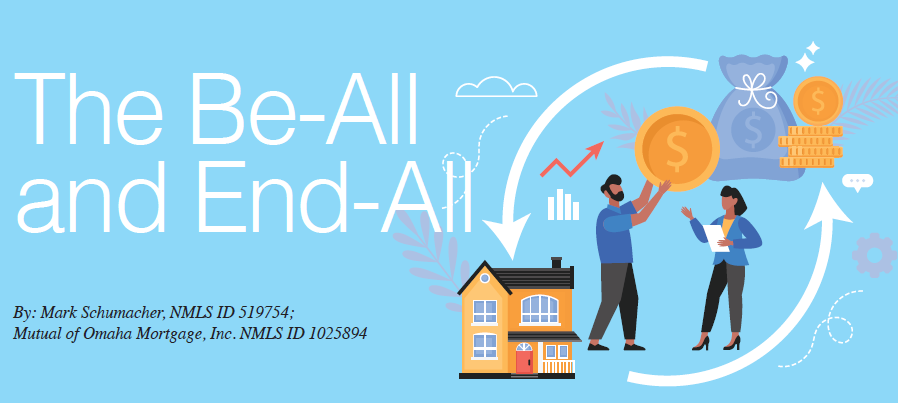
By: Mark Schumacher, NMLS ID 519754; Mutual of Omaha Mortgage, Inc. NMLS ID 1025894
Ever since my wife and I made our first mortgage payment after purchasing our first home together, a condo in the city, I dreamt of the day we would no longer have a mortgage payment. At the time I wasn’t thinking about how unlikely it would be that we would stay there long enough to do that. I should have known better given it was a 2 bed, 1 bath condo on the 3rd floor with no elevator. We were relatively young, fit, and had no kids. Just writing that reminds me of how much fun we had in those days. 🙂
But baby #1 did come along not long after and my fit wife started feeling shoulder pain from bringing baby up several flights of stairs in the car seat, along with whatever else she was carrying. It was a short stay beyond that point.
Paying off a mortgage is a wonderful milestone for homeowners, but I started to think differently about it after we purchased our second home. Don’t misunderstand me. I’m not saying I came around to thinking, “oh goody, it’s that time of month again I get to send my cash to my lender.” No. It was more a realization or recognition of the significance cash-flow plays throughout our lives. This happened when I began offering reverse mortgages to homeowners age 62 and greater. I heard so many stories from this group of homeowners, how hard they worked to pay off their homes, and now they were struggling with cash-flow challenges. That might be surprising given our thinking that “no mortgage payment” equates to “more comfortable cash-flow”.
Often I’ve heard homeowners say, “our home is paid-for.” But is it really? Housing is a life-long expense. Even after the mortgage is gone the routine costs of property taxes and homeowner’s insurance (and a homeowner’s association for some) repeat each year. Of course, maintenance/upkeep continue as well. Heaven forbid the 4-syllabel word re-no-va-tion which can sometimes feel like buying your home…again.
Not that paying off the mortgage isn’t a good goal or objective to have. It IS good. But it shouldn’t be done in a silo, meaning, we should consider the impact that has on our cash-flow. After all, this implies we are using cash, which supports cash-flow, and turning it into home equity, which doesn’t support cash-flow.
This is particularly relevant in retirement when we look to our assets to provide us cash-flow as opposed to that coming from our working income. In our working years we use our cash-flow to build up our home equity. Reverse mortgage uses our home equity to build up our cash-flow. That must be how the creators came up with the name; it flips it on its head.
A reverse mortgage is just a mortgage. The homeowner is still the homeowner. It’s an agreement between lender and borrower where the lender extends money to borrower with an agreed-upon repayment plan. The repayment will include interest like every mortgage has. It’s the flexibility of the agreed-upon repayment plan that makes it so helpful. You don’t have to make a monthly mortgage payment. Instead, you can defer the payments until the end of the loan when you no longer live in the home. In other words, interest expense is accruing to the mortgage balance for payback later.
Homeowners are still responsible for property taxes and homeowner’s insurance and upkeep of their home. Some of our reverse mortgage clients later decide to sell there home and move elsewhere. That’s fine. They pay off the mortgage balance in the process and take the equity with them. That probably sounds familiar to anyone that has sold a home with a mortgage on it.
By the way, a home doesn’t have to be lien-free to do a reverse mortgage. Some clients use a reverse to pay off their existing mortgage thereby eliminating their monthly mortgage payment.
Paying off a mortgage is often considered the Be-All, End-All for the house. But having sufficient cash-flow reserves is perhaps a more important goal for retirees to have because it’s looking at the bigger picture; having the cash to pay for life. Piece of mind. Reduced stress. Better quality of life. Make memories rather than mortgage payments.



